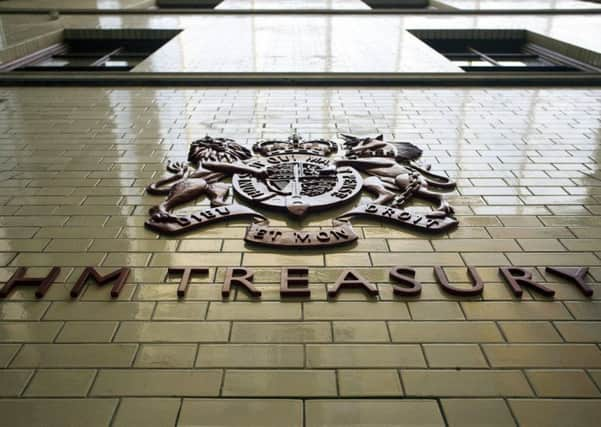Treasury's low-key approach to costs of RHI scandal '˜peculiar'


Most reporting of the ‘cash for ash’ debacle has described it as a £490 million scandal, because that is the portion which will come directly from Stormont’s budget.
However, the other £700 million is being paid directly by Westminster.
Advertisement
Hide AdAdvertisement
Hide AdNow the Treasury is facing questions about its role in safeguarding taxpayers’ interests, particularly amid the current democratic vacuum in Belfast, where the civil service is now in charge without democratic control.
Unlike the ‘block grant’ of around £10 billion which goes to Stormont each year and over which it has complete control, the RHI money came from what is known as ‘Annually Managed Expenditure’ – a key difference.
That funding, which includes pensions and benefits, is demand-driven, and comes directly from the Treasury because it cannot accurately predict how much money will be required each year. But, crucially, the money can only be spent for the intended purpose.
There has been evidence of abuse of the RHI scheme – and allegations that such abuse is widespread – with farmers heating empty barns around the clock and previously unheated factories heated to uncomfortable levels simply to milk the subsidy.
Advertisement
Hide AdAdvertisement
Hide AdThat means that at least some of the money has not been used for the approved purpose.
In response to questions from the News Letter, the Treasury said that it could not comment due to purdah, which restricts the civil servants from saying anything which could influence an election.
However, it is understood that the Treasury takes the view that it is for devolved administrations to decide how to use the funding available to them - and to take the consequences of those decisions.
Stormont sources suggested that the Treasury may be less concerned about the RHI scandal because its exposure to the scheme had been capped from the start, meaning that even though there is abuse the additional funding is coming from Stormont’s budget rather than from Whitehall.
Advertisement
Hide AdAdvertisement
Hide AdMargaret Ritchie, who is standing for re-election as an SDLP MP, raised the issue with the Treasury when the scandal broke before Christmas but was told by David Gauke, chief secretary to the Treasury, that “it is for the devolved administration to determine the operation of such schemes, and to meet costs in excess of the budget set by the Treasury from its block grant or the other resources available to it”.
He also said that “it is important that the boundaries of the devolution settlement are respected in relation to public spending and accountability”.
Former UUP leader Lord Empey, a veteran former Stormont minister, said that the Treasury’s low-key stance over recent months had been “peculiar”, given the sums of money involved, and suggested that it may be motivated by a desire to de-escalate a crisis which toppled Stormont as doing so could make it more difficult to resurrect the devolved Executive.
He said: “They’ve [the Treasury] put a political block on the whole thing because they don’t want to rock the boat.”
Advertisement
Hide AdAdvertisement
Hide AdThe peer said the situation was emblematic of a wider Westminster culture: “There is almost this devolve and forget policy in London – if it’s devolved, it’s off the table and we can forget about it. That is a huge mistake because we are talking about huge sums of money here.”
North Antrim MLA Jim Allister said: “It is very important that in the present ‘no man’s land’ situation the Treasury is alert to its responsibilities to ensure there are due and proper controls on spending and to ensure that we are not only getting our fair share but we are properly spending the money.”
And Green Party leader Steven Agnew – one of those who first raised questions about the RHI scheme – said: “Ultimately, the Treasury sets the finances and guidelines for Northern Ireland. The fact this was a situation that was allowed to occur should cause the Treasury to look at its financial controls and see if they’re sufficient.
“But let’s be clear – this was scandal made in Northern Ireland ... I’d be loathe to ask Westminster to take more control over Northern Ireland’s finances. Ultimately the blame lies here.”